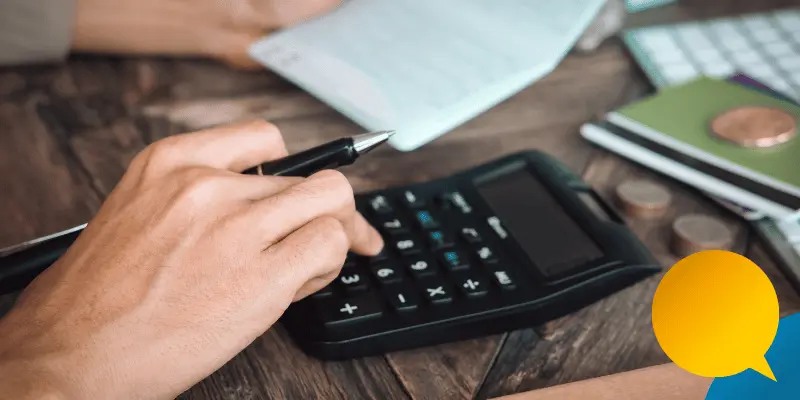
Debt Consolidation
Debt consolidation is about bringing your debts together so you only have to manage them in one place.

If you’re struggling with unmanageable debts, you may have come across the term IVA — short for Individual Voluntary Arrangement It’s one of the most common debt solutions in the UK, but before you decide if it’s right for you, it’s important to understand both the advantages and disadvantages.
An IVA can help you write off unaffordable debt, protect you from bailiffs and creditors, and allow you to make one affordable monthly payment. But it also has drawbacks, including a long commitment and impact on your credit rating.
This guide breaks down the real IVA pros and cons, explains who qualifies, explores alternatives, and answers the most frequently asked questions. If you need personalised advice, Advice Centre Group offers free, confidential debt help — so you can make the right decision for your situation
An Individual Voluntary Arrangement (IVA) is a legally binding agreement between you and your creditors to repay part of your debts over a set period, usually five to six years.
Here’s how it works:
Assessment – An Insolvency Practitioner (IP) reviews your income, expenses, and debts.
Proposal – They prepare a repayment offer for your creditors, based on what you can afford.
Voting – Creditors vote on the proposal. If 75% (by debt value) agree, the IVA becomes legally binding on all creditors.
Payments – You make one affordable monthly payment to the IP, who distributes it among creditors.
Completion – At the end, any remaining unsecured debt is written off.
Example:
If you owe £25,000 across 8 creditors and can afford £150 per month, you’ll pay £9,000 over 5 years. The rest — £16,000 — is written off.
An IVA is supervised by a licensed Insolvency Practitioner, ensuring compliance with the law and fairness to both you and your creditors
Find Out More On “What is an IVA ” – Click Here
An IVA can provide life-changing relief for the right person. Let’s break down the main benefits:
At the end of the IVA, any unpaid unsecured debt is written off.
If you owe £20,000 and pay back £9,000, the rest (£11,000) is cleared.
This makes an IVA one of the few debt solutions that actually reduces your overall debt.
Once approved, creditors cannot:
Send bailiffs to your home
Add further interest or charges
Take you to court for CCJs or enforcement
This protection is immediate once your IVA is in place.
Payments are based on your disposable income (what you can realistically afford).
You only make one payment, not juggling multiple creditors.
Reviews each year ensure payments stay manageable.
In most cases, you keep your home if mortgage payments are maintained.
Cars and work tools are usually safe if essential for daily living or employment.
Unlike bankruptcy, your possessions aren’t automatically at risk
Even creditors who voted against the IVA are bound by its terms, giving you certainty.
Key takeaway: An IVA gives you breathing space, legal protection, and a path to becoming debt free without losing everything you own.
While IVAs are powerful, they’re not right for everyone. Here are the main drawbacks to consider:
An IVA stays on your credit file for six years.
Getting new credit, mortgages, or even some job applications can be more difficult.
You must stick to payments for five to six years.
Missing payments risks the IVA failing, leaving you vulnerable to creditors again.
Secured debts (like mortgages and car finance) are not covered.
Certain debts (e.g., student loans, fines, child maintenance) can’t be written off.
The Insolvency Practitioner’s fees come from your payments, reducing what goes directly to creditors.
Key takeaway: An IVA can give relief, but it also requires discipline, affects your credit, and isn’t suitable for everyone.


The Advice Centre Group Has Given Me Hope.
I have been really helped by the Advice Centre Group. The person who helped me a great deal was called Long, and he really did guide me every step of the way. My debts were crippling and the IVA has really given me hope that I can start afresh and at the same time responsibly pay my creditors what I can.
Thankyou
Name changed for privacy**
By submitting the above contact form you agree to be contacted by The Advice Centre regarding your enquiry. Your data will not be passed onto third parties without your consent.
An IVA may be right if you:
Have £6,000+ in unsecured debts across multiple creditors
Have a steady income (employment or benefits)
Can make regular monthly payments
Want to protect your home from repossession
Are being chased by bailiffs or creditors
An IVA may not be suitable if you:
Owe less than £6,000
Have no reliable income
Mostly have secured debts (like mortgages or car loans)
Need a short-term solution
Example Scenarios:
John earns £1,800/month, owes £22,000. He can afford £160/month → IVA fits.
Sarah owes £4,000, lives on benefits → DRO would be more suitable.
Not sure an IVA is right? Here are alternatives to consider:
Debt Management Plan (DMP): Informal, flexible monthly repayments, but creditors can still chase.
Debt Relief Order (DRO): For debts under £50,000, low income, few assets.
Bankruptcy: Quick debt write-off, but serious consequences (loss of assets, restrictions).
Consolidation Loan: Combines debts into one loan, but may not be available with poor credit.
👉 Advice Centre Group discuss an IVA in contemplation of an appointment of an IVA, if we find another solution may be a better option we will passs you onto those who can help with those
For many people, yes. An IVA can make debts affordable, stop creditor contact, and give you a clear route to becoming debt-free. However, it does affect your credit file and requires a long-term commitment.
Is an iva worth it – CLICK HERE
IVAs are usually best suited if you owe more than £6,000 to two or more creditors and have a steady income.
Yes. Once your IVA is approved, bailiffs and other enforcement action must stop, provided your debts are included in the IVA.
Most people keep their home in an IVA. If you own property, you may be asked to release equity in the final year, but repossession is not part of the process unless you fail to maintain payments.
IVA And Mortgage Blog – CLICK HERE
At the end of the IVA, any remaining unsecured debt included in the arrangement is written off, and you’ll be issued a completion certificate.
The pros of an IVA are clear: affordable payments, frozen interest, creditor protection, and eventual debt write-off. The cons of an IVA include its effect on your credit rating, the long-term commitment, and possible equity release.
For many people, the benefits outweigh the drawbacks. An IVA can be the first step towards a debt-free future

Debt consolidation is about bringing your debts together so you only have to manage them in one place.

Breathing Space, is a government initiative in England and Wales that gives people temporary protection from creditor action.

Yes – In Short, Bailiffs can refuse payment plans, However there are options available to help you.

Call us – 0161 768 8403
Email us – Enquiries@advicecentregroup.co.uk


You can visit the Money Helper website to find out more about managing your money and to get free advice, they are an independent service set up to help people manage their money
Advice Centre Group Ltd registered in England and Wales (14322979). Registered office: Second Floor A, Cheadle Place, Cheadle, Cheshire, England, SK8 2JX.
Adam Southard is authorised as a Licensed Insolvency Practitioner in the United Kingdom by the Insolvency Practitioners Association, We only provide advice after completing or receiving an initial fact find where the individual(s) concerned meet the criteria for one of our insolvency solutions, therefore, all advice regarding Individual Voluntary Arrangements (IVA) is given in reasonable contemplation of an insolvency appointment.
Adam Southard is licensed to act as an Insolvency Practitioner in the UK by the Insolvency Practitioners Association. Office Holder No. 11930
Insolvency Practitioner Directory- Insolvency Practitioner Details (bis.gov.uk)
What you need to know about Individual Voluntary Arrangements
(Insolvency Service)
We provide solutions to individuals throughout the UK, We Will help recommend solutions available to your circumstances in which you can then make an informed decision about which solution you qualify for is best for you and your circumstances.